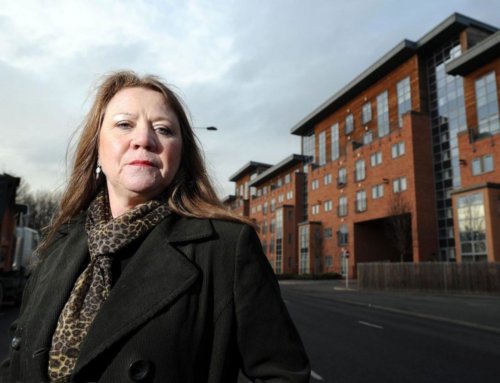How I ditched my managing agent … and saved money
A great case study in The Guardian describing how a group of leaseholders made some large savings by taking over a management of a new building in Cardiff Bay:
This article was written by Marcus Stead for The Guardian and published on 21/09/2012
Thousands of flat owners across Britain are handing over vast sums to managing agents to cover service and maintenance charges – but it doesn’t have to be that way.
 My story explains how it’s both possible and practical to break away from these companies using a simple process which, in our case, cut the service charges by more than two-thirds. In the summer of 2009, as a single man in my mid-20s, I moved into my perfect home: a waterfront flat in Cardiff Bay on the top floor of a block of three flats.
My story explains how it’s both possible and practical to break away from these companies using a simple process which, in our case, cut the service charges by more than two-thirds. In the summer of 2009, as a single man in my mid-20s, I moved into my perfect home: a waterfront flat in Cardiff Bay on the top floor of a block of three flats.
The view from my balcony is spectacular in all directions, from the Cardiff skyline, to the Wales Millennium Centre, and, on a clear day, across the Severn estuary to the Mendip hills, as well as a stunning array of wildlife on the waterfront. Even now, I cannot believe my luck that I call this flat my home. However, there was just one catch: the managing agents, a controversial company called Peverel OM (now called OM Property Management, part of the Peverel Group) were charging more than £100 per month in service charges, which I considered excessive.
To put it into context, this is a small block of flats with no lift. The only regular services the agents needed to provide were the insurance, cleaning the communal areas and maintaining the garden. Such a small amount of work did not, I felt, merit anything close to the £3,500 they received that year from the three leaseholders.
The following December, I received a letter from Peverel OM saying they would be increasing the monthly charge to £115.25 in the new year. A few weeks later, it sent me the accounts for the previous year. It contained a number of charges which I thought were questionable, the worst being the £250 they claimed for “aerial system maintenance”. Two of the three leaseholders watch TV through a satellite dish, and the third has a set-top aerial for his Freeview connection. For me, this was the final straw.
I did some research, and discovered that, under the Commonhold and Leasehold Reform Act 2002, we were entitled to remove Peverel OM and set up our own company to manage the block, known as a “Right to Manage” (RTM) company. Using one of several online firms specialising in this process, which costs around £150 per flat, the whole thing took roughly five months from the beginning to the day our RTM company took control. We used a Wirral-based company called Leasehold Doctors.
The way our company operates is simple: all three leaseholders are directors, but I run it on a day-to-day basis, controlling the bank account and carrying out routine tasks such as renewing the building insurance.
However, nobody is more important than anybody else. All major decisions are taken at our annual meeting, and, in the event of any dispute (we’ve never had one), a vote determines the outcome. Furthermore, because the company was set up as “limited by guarantee”, we do not have to submit accounts to HMRC or pay any corporation tax, and each director’s liability in the event of liquidation is £1. We even have a website: rtminfo.com/seager
The savings we made in the year that followed were extraordinary. Each leaseholder paid just £10 a month into the RTM bank account for general upkeep, and a gradual build-up of funds for larger repairs, with other payments as and when needed.
Under Peverel OM, for example, our insurance was covered by a company called Kingsborough. Its buildings and terrorism insurance premium came to £1,045 for the block.
Using a commercial insurance broker, without any special treatment, I reduced that to £487 for our first year, rising only slightly – to £504 – for the current year. As a result, I pay, on average, around £28 a month to cover things such as my share of the insurance, cleaning of shared areas, communal electricity, plus a little for a rainy day.
My neighbour, Peter Downey, a retired lecturer, said:
“I consider it a huge success and feel much happier with the way decisions are taken about the upkeep of the block.”
Two years on, all three flat owners are saving money, and we feel far more comfortable being able to hire our own choice of tradesmen.
I do believe most people can, with prudent management, expect to save enough each year for a holiday or a big-screen TV.




